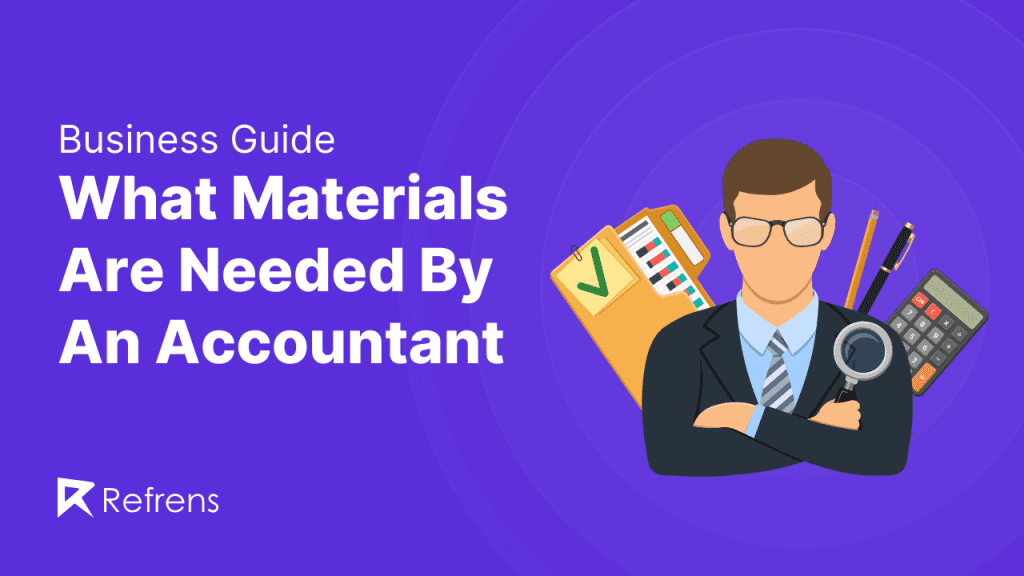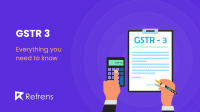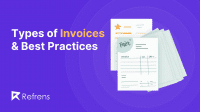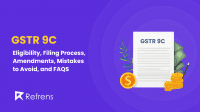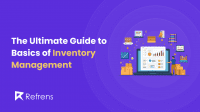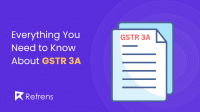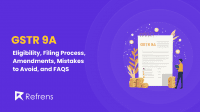As a professional who handles finance and business operations, accountancy means that the art of financial transactions and further analysis to make reports will be an integral component of the accuracy achieved.
Accountants are simply human beings who ensure that stakeholders remain accurate to rules, achieve optimization of taxes, and bring experiences and insights for competitiveness.
For this business to succeed, practicing accountants would require a suite of a very comprehensive variety of materials and tools they would use in the execution of their duties. These resources should be error-free and readily available when needed.
This guide covers the most needed accountant materials, including the software tools, physical supplies, and reference materials key for use.
1. Tax Folders and Tax Envelopes
The first essentials on the list are the tax folders and the tax envelopes. The two sound obvious, but the diversification of using them to stack them with sensitive documents may appear considerable. A tax folder is a handy place to store tax returns, supporting documents and correspondence with the tax authorities.
They help organize great orderliness, enable easy access by accountants to retrieve information and make references useful in engaging clients in discussions. That, in turn, assures successful workflow, decreasing the chances of a document being lost or damaged, in particular when important papers can find their way out.
Tax envelopes are also essential accounting office supplies. They are used to send any information about the parties, such as the client or government agencies to which one’s taxation relates. It should be designed to provide the confidentiality of sensitive information sent to the involved parties and reflect the deep concern for protecting information that a good finance specialist should have.
2. Calculators and Adding Machines
Modern online accounting software could never be better for serious, thorough calculations. However, good calculators or adding machines are helpful in case one of those lightning-fast computations is necessary to assure data integrity for a business.
It provides good quality calculators and machines with the latest features like tax calculations, cost/sell/margin calculations, and memory functions. The advancement in different technologies advances business operations toward streamlining repetitive work, thus reducing the risk of mistakes and ensuring proper financial reports and tax filing.
3. Accounting Software
In line with the recent technological advancement worldwide, the development and use of software as a tool in various disciplines are evident. This aids professionals in enhancing their performance, effectively managing data, and streamlining the process of managing company finances.
When selecting accounting software, accountants should prioritize scalability and integration capabilities with other business systems. Additionally, ensuring security and compliance with accounting regulations are critical factors that should not be overlooked. These aspects play a crucial role in the effectiveness and efficiency of the software in managing financial tasks.
We have created a comprehensive guide of top accounting software, including open source accounting software, along with features, pricing, ratings, and user reviews to get you started with the right software.
4. General Ledger and Journals
Even though they are far from being as popular as they previously were, traditional ledgers and journals still retain their importance and form an essential tool for an accountant. Undoubtedly, accounting software has revolutionized how financial transactions are recorded and maintained, but these electronic means of keeping such information can still be lost or destroyed.
The journals record and classify transactions like money receipts, sales, purchases, and payroll. It proves that these are the physical records that serve as a backup when required, help in different auditing processes, and play out as historical financial data.
5. Reference Materials
The accounting industry is dynamic. There are ongoing changes due to the evolving rules, tax laws, and general industry standards. For the accountants to stay ahead by knowing all the changes and being number one in the sector, they should have access to various reference materials. For those looking to deepen their expertise, seeking accounting assignment help can provide insights and guidance, enhancing understanding and application in this field.
These may include accounting textbooks, professional journals, tax guides, or online research studies from credible institutions like the American Institute of CPAs (AICPA) or the Financial Accounting Standards Board (FASB). Accountants constantly subscribe to and study these materials to assist them in keeping abreast of existing standards and compliance.
6. Filing and Storage Systems
An accountant should appreciate the need for sensible organization and safekeeping regarding any financial documents. This means filing and storage systems that ensure vital records are accessible, safe, and updated according to some laws.
In this regard, it is possible to see some of the physical filing systems with documents, such as invoices, receipts, and financial statements, including cabinets, binders, and even folders. Enjoy looking at digital storage options that can be accessed and viewed online. This could be from available cloud computing platforms to given external hard drives since they offer secure, scalable storage of electronic records should the need ever present itself. Whatever you use, make sure to also leverage workflow documentation to ensure efficient and consistent processes, reducing the risk of errors and omissions.
7. Productivity and Time Management Tools
You will often find yourself really tested for productivity and time: to be on top of the time and the workload.
The must-have products include efficient apps for task management, comfy calendar software, and time-tracking solutions. All these are integrated effectively to see that you maximize workflow, allow proper classifying, and boost the accuracy of tracking time spent establishing priorities and handling critical tasks.
It is these tools that are now able to facilitate all accountant operations. This makes them very effective as they can minimize disturbances and, in a very consistent way, meet the set requirements by their clients and employers.
Wrapping Up
Material and tools are indispensable to the fast-developing countryside of accounting procedures and the finance available to an accountant for assurance, accuracy, service, performance, and compliance.
This thus convinces the accounting profession of the value of making investments in the right materials. What streamlines the processes and enhances productivity does so in a manner that depicts professionalism and attention to detail on the minutiae.
Materials handled in this guide serve as the stage for the accountant in response to building their skills, providing outstanding services, and participating in the financial success of businesses and humans in general.
Bonus: We have created a designated list of billing software for chartered accountants that consists of a comprehensive list of top players in the market to further assist the CAs in their work.

